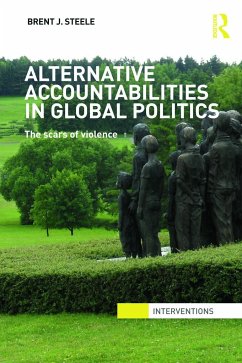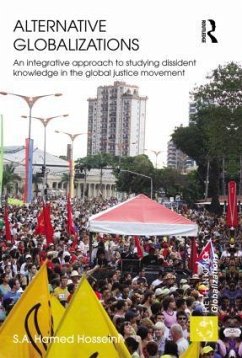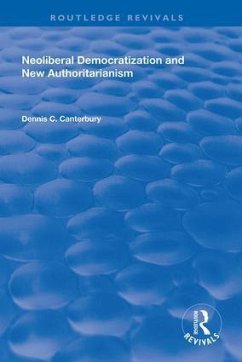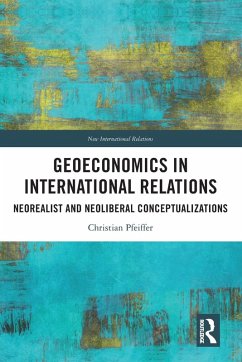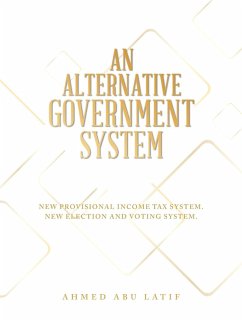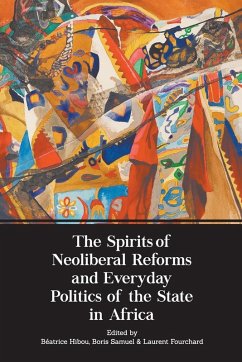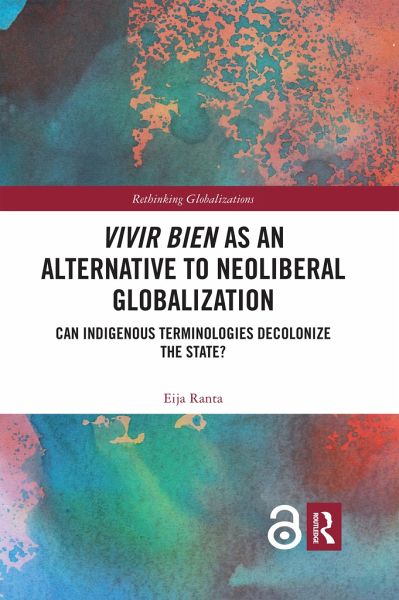
Vivir Bien as an Alternative to Neoliberal Globalization
Can Indigenous Terminologies Decolonize the State?
Versandkostenfrei!
Versandfertig in 1-2 Wochen
55,99 €
inkl. MwSt.
Weitere Ausgaben:

PAYBACK Punkte
28 °P sammeln!
Presenting an ethnographic account of the emergence and application of critical political alternatives in the Global South, this book analyses the opportunities and challenges of decolonizing and transforming a modern, hierarchical and globally-immersed nation-state on the basis of indigenous terminologies. Alternative development paradigms that represent values including justice, pluralism, democracy and a sustainable relationship to nature tend to emerge in response to - and often opposed to - the neoliberal globalization. Through a focus on the empirical case of the notion of Vivir Bien ('L...
Presenting an ethnographic account of the emergence and application of critical political alternatives in the Global South, this book analyses the opportunities and challenges of decolonizing and transforming a modern, hierarchical and globally-immersed nation-state on the basis of indigenous terminologies. Alternative development paradigms that represent values including justice, pluralism, democracy and a sustainable relationship to nature tend to emerge in response to - and often opposed to - the neoliberal globalization. Through a focus on the empirical case of the notion of Vivir Bien ('Living Well') as a critical cultural and ecological paradigm, Ranta demonstrates how indigeneity - indigenous peoples' discourses, cultural ideas and worldviews - has become such a denominator in the construction of local political and policy alternatives. More widely, the author seeks to map conditions for, and the challenges of, radical political projects that aim to counteract neoliberal globalization and Western hegemony in defining development. This book will appeal to critical academic scholars, development practitioners and social activists aiming to come to grips with the complexity of processes of progressive social change in our contemporary global world.







